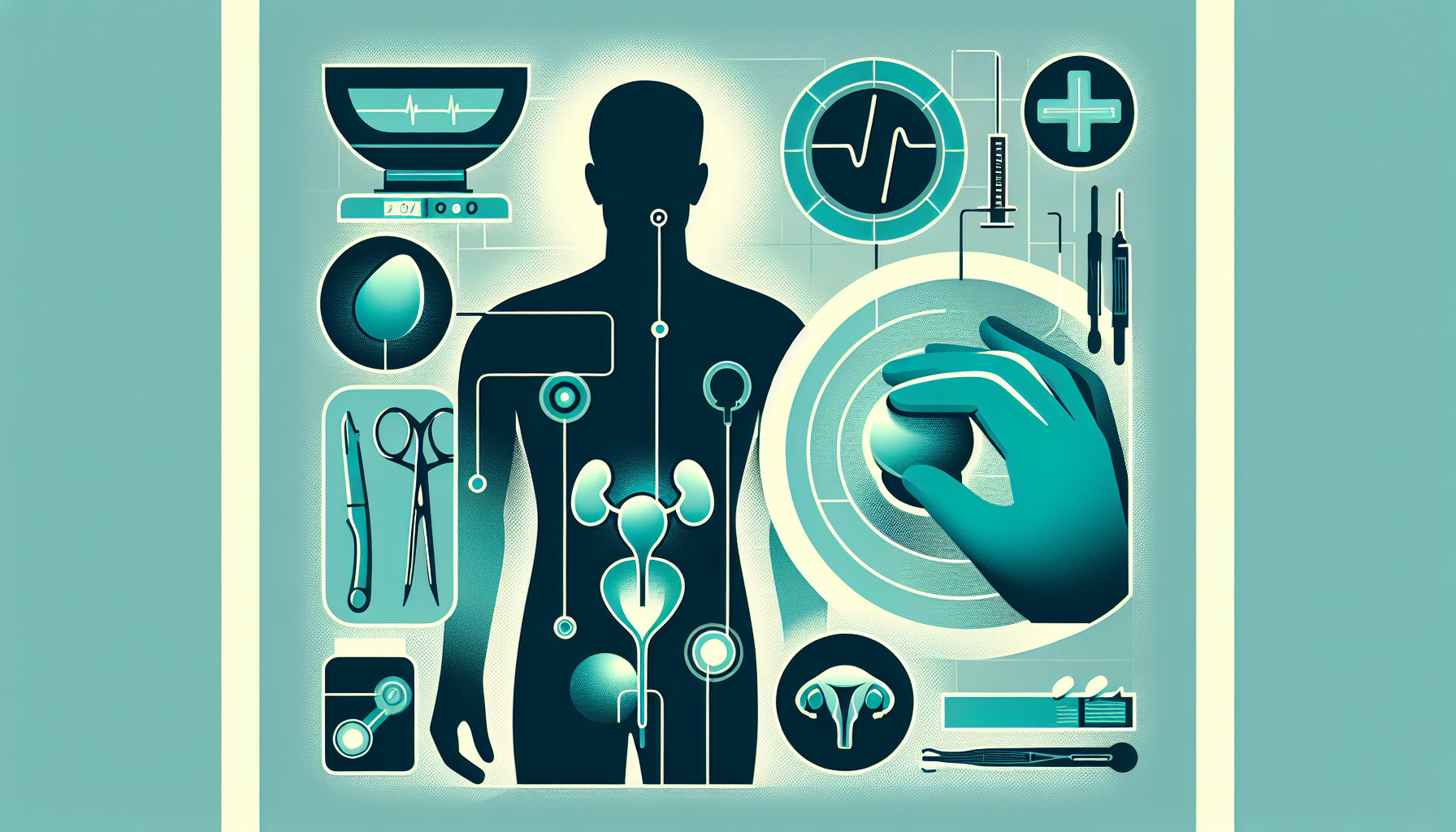Our Summary
This research paper discusses the use of different culture media to isolate and treat harmful bacteria before surgery. This can reduce complications related to treatment, improving patient outcomes and avoiding unnecessary hospital stays after procedures. There has been an increase in drug-resistant E. coli bacteria, which can become dangerous if they enter the bloodstream after a prostate biopsy. Studies have shown that using selective media to isolate these bacteria before surgery can be beneficial. This approach can help provide personalized preventative treatment, benefiting patients and reducing costs for hospitals.
FAQs
- What is the purpose of using different culture media before surgery?
- How does isolating bacteria before a prostate biopsy improve patient outcomes?
- How does the use of selective media to isolate bacteria before surgery help in reducing hospital costs?
Doctor’s Tip
One helpful tip a doctor might give a patient about prostate biopsy is to make sure to follow any pre-procedure instructions provided by the healthcare team, such as fasting or stopping certain medications. It is also important to discuss any concerns or questions with the doctor before the procedure to ensure a smooth and successful biopsy. Additionally, it is recommended to stay hydrated and avoid strenuous activities after the biopsy to promote healing and reduce the risk of complications.
Suitable For
Patients who are typically recommended for a prostate biopsy include those who have abnormal results on a digital rectal exam (DRE) or prostate-specific antigen (PSA) test, as well as those who have a family history of prostate cancer. Additionally, patients with symptoms such as frequent urination, blood in the urine or semen, or difficulty urinating may also be recommended for a biopsy to rule out prostate cancer.
In some cases, patients may also be recommended for a biopsy if they have a previous history of prostate cancer and their PSA levels are rising, indicating a possible recurrence of the disease. Patients who have undergone previous treatments for prostate cancer, such as radiation therapy or hormone therapy, may also be recommended for a biopsy to monitor the effectiveness of the treatment and detect any potential recurrence.
Overall, the decision to recommend a prostate biopsy is made on a case-by-case basis by a healthcare provider, taking into consideration the patient’s individual risk factors, symptoms, and medical history.
Timeline
Before Prostate Biopsy:
- Patient is referred for a prostate biopsy by their healthcare provider after abnormal results from a prostate-specific antigen (PSA) test or digital rectal exam.
- The patient undergoes counseling and informed consent to understand the risks and benefits of the procedure.
- The patient may be instructed to stop taking blood-thinning medications or supplements before the biopsy.
- On the day of the biopsy, the patient may receive antibiotics to reduce the risk of infection during the procedure.
After Prostate Biopsy:
- The patient may experience some discomfort, bleeding, or blood in the urine or semen immediately after the biopsy.
- The patient is monitored for signs of infection, such as fever or persistent pain, in the days following the procedure.
- A pathologist examines the biopsy samples to determine if there are any abnormal cells present.
- The patient receives the biopsy results and discusses further treatment options with their healthcare provider, such as active surveillance, surgery, or radiation therapy.
- The patient may experience side effects such as erectile dysfunction or urinary incontinence depending on the treatment chosen. Follow-up appointments and monitoring are scheduled to track the patient’s progress and address any concerns.
What to Ask Your Doctor
- What are the potential risks and side effects associated with a prostate biopsy?
- How will the biopsy results help in determining the best course of treatment for my condition?
- What are the alternatives to a prostate biopsy and why is it recommended in my case?
- How accurate are the biopsy results in detecting prostate cancer?
- What steps are taken to minimize the risk of infection during and after the biopsy procedure?
- How will the biopsy results be communicated to me and how soon can I expect to receive them?
- Are there any lifestyle changes or precautions I should take before or after the biopsy procedure?
- Will I need to follow up with additional tests or appointments after the biopsy?
- Are there any specific instructions or restrictions I should follow post-biopsy to ensure proper healing and recovery?
- How often should I undergo prostate biopsies in the future, based on my current health status and risk factors?
Reference
Authors: Acosta H, Sadahira T, Sekito T, Maruyama Y, Iwata T, Araki M, Ogawa K, Tsuboi I, Wada K. Journal: Int J Urol. 2022 Jun;29(6):486-493. doi: 10.1111/iju.14824. Epub 2022 Feb 10. PMID: 35144308
